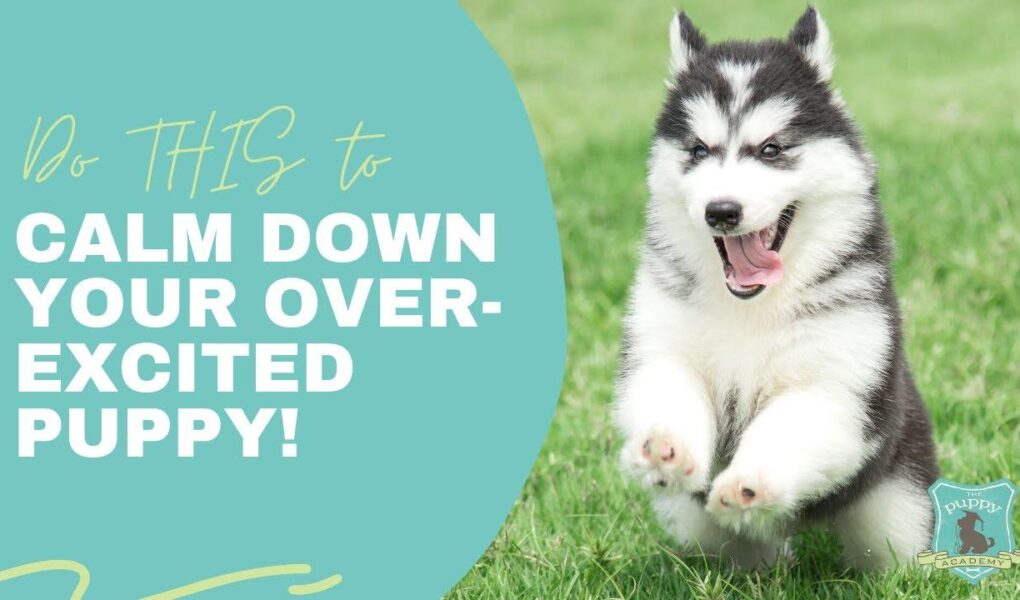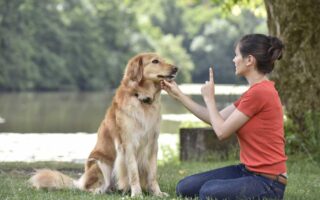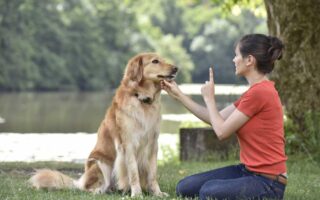Title: Understanding Puppy Excited Pee: A Natural Reaction
When a puppy enters a room filled with new faces, toys, and the promise of play, you might notice an exuberant display of energy that can sometimes result in an unexpected stream of excitement. This phenomenon, often referred to as “puppy excited pee,” is a common and often misunderstood behavior in our four-legged friends. While it may elicit laughter or concern from onlookers, this instinctive response is a normal part of a puppy’s development. In this article, we will explore the causes behind this joyous outburst, the physiological responses at play, and practical tips for managing and minimizing excited urination in dogs. By understanding this endearing yet puzzling behavior, we can foster a happier, more relaxed environment for our playful companions.
Table of Contents
- Understanding the Causes of Excited Peeing in Puppies
- Identifying Triggers and Learning to Manage Them
- Effective Training Techniques to Curb Excitement Urination
- Creating a Calm Environment to Promote Positive Behavior
- Q&A
- Key Takeaways
Understanding the Causes of Excited Peeing in Puppies
Understanding why puppies experience excited peeing can help pet owners manage this common behavior. This reaction is primarily rooted in a puppy’s natural instincts and developmental phases. Excited peeing usually occurs when a pup is experiencing intense emotions, such as joy, fear, or overwhelming excitement. During these moments, a puppy’s body may struggle to control its bladder, leading to involuntary urination. Some factors contributing to excited peeing include:
- Age: Young puppies often have less control over their bladders and may not fully grasp the need to hold it.
- Socialization: Inexperienced puppies may feel overwhelmed during social interactions, prompting an excited response.
- Temperament: Each puppy has a unique personality; some may be more enthusiastic or sensitive than others.
Furthermore, it’s essential to recognize that excited peeing is not a sign of dominance or disobedience; rather, it is a natural occurrence reflecting the puppy’s emotional state. Behavioral cues such as wagging tails, jumping, and overall enthusiasm often accompany this reaction. Understanding trigger scenarios, like greetings from family members or playtime, can be beneficial in addressing this issue. Implementing consistent training strategies, such as:
- Calm greetings: Encourage calm behavior during arrivals.
- Frequent potty breaks: Provide multiple opportunities for the puppy to relieve themselves before engaging in play.
- Positive reinforcement: Reward good behavior to reinforce bladder control.
Identifying Triggers and Learning to Manage Them
For many puppy parents, the initial excitement their furry friend exhibits often leads to the frequent occurrence of excited urination. Understanding the triggers of this behavior is essential in helping both the puppy and the owner feel more at ease during these moments. Common scenarios that can lead to excited peeing include:
- Greeting family members or guests
- Toy or food introduction
- Playtime excitement
- Sudden loud noises
Once you’ve identified the triggers, you can start to manage the responses in a more constructive way. Training your puppy to respond differently when they feel excited can minimize instances of this behavior. Implementing a few methods, such as:
- Calm greetings to reduce overwhelming excitement
- Posing after playtime to teach self-control
- Using positive reinforcement when they stay calm
Create a consistent routine around these triggers, and your puppy can learn that there’s no need to be overwhelmed, ultimately leading to a happier puppy and a cleaner home.
Effective Training Techniques to Curb Excitement Urination
For puppies that tend to express joy through urination, implementing a structured training technique can significantly reduce these episodes. Begin by creating a calm environment during greetings; actively encourage guests to ignore your puppy until it settles down. Having guests kneel instead of standing can help lower the stimulation level, making your puppy feel less anxious and excited. Consistent, low-key interactions will teach your pup that calm behavior leads to attention and affection.
Additionally, consider reinforcing desirable behaviors with positive reinforcement. Whenever your puppy remains calm during greetings and fails to wet itself, reward it with treats or praise. Establishing a simple training schedule that includes regular potty breaks will help manage your puppy’s excitement. Here’s a quick reference table for an effective training routine:
| Time of Day | Activity | Notes |
|---|---|---|
| Morning | Calm playtime | Limit excitement for successful bathroom break |
| Midday | Short training session | Focus on commands while staying calm |
| Evening | Structured greetings | Practice ‘sit’ and wait for calmness |
Creating a Calm Environment to Promote Positive Behavior
Establishing a serene atmosphere can significantly enhance a puppy’s learning experience and encourage positive behaviors. One effective strategy is to create a designated space that is calm and free from distractions. Consider incorporating elements such as:
- Soft bedding to provide comfort.
- Low lighting that creates a soothing ambiance.
- Calming sounds, such as gentle music or white noise.
- Avoiding loud noises that might startle your puppy.
Additionally, consistent routines can further promote a peaceful environment. By establishing a schedule for feeding, playtime, and bathroom breaks, puppies will feel more secure and less anxious. Consider keeping a simple chart of your routine:
| Activity | Time |
|---|---|
| Feeding | 8:00 AM |
| Walk | 9:00 AM |
| Playtime | 10:00 AM |
| Nap | 12:00 PM |
Q&A
Q&A: Understanding Puppy Excited Pee
Q1: What is “puppy excited pee”?
A1: Puppy excited pee is a common behavior exhibited by young dogs when they are overly excited or stimulated. This involuntary response often occurs during greetings, playtime, or any situation that triggers a strong emotional reaction in your pup, resulting in a small amount of urine being released.
Q2: Why do puppies exhibit this behavior?
A2: This behavior is primarily due to their natural instincts and immature bladder control. Young puppies, especially those still developing their social skills, may find themselves overwhelmed by excitement. Their bodies respond in ways that can include excitement urination, which is a normal part of puppy development.
Q3: Is puppy excited pee a sign of a behavioral problem?
A3: No, puppy excited pee is not a behavioral issue; it is a developmental phase. Most puppies outgrow this behavior as they mature and learn to regulate their excitement better. Consistent training, positive reinforcement, and patience can help mitigate this occurrence over time.
Q4: How can I minimize excited peeing in my puppy?
A4: To minimize excited peeing, try to keep greetings low-key. Instead of an enthusiastic welcome, remain calm and give your puppy time to settle before showering them with affection. Additionally, regular bathroom breaks can help manage their bladder and give them the opportunity to relieve themselves before facing exciting situations.
Q5: What should I do if my puppy pees from excitement?
A5: If your puppy does pee from excitement, the best course of action is to remain calm and avoid scolding them, as this could create anxiety. Instead, gently clean up the mess without making a fuss. Over time, your puppy will learn to associate excitement with a more controlled response.
Q6: When should I be concerned about my puppy’s urination?
A6: If your puppy continues to urinate frequently, regardless of excitement, or if you notice other concerning symptoms like straining, blood in the urine, or excessive drinking, it’s best to consult a veterinarian. These could be signs of a urinary tract infection or other health issues that require attention.
Q7: Are certain breeds more prone to excited peeing?
A7: While any puppy can experience excited pee, some breeds that are typically more energetic or social may display this behavior more frequently. Breeds known for their high energy and enthusiasm often exhibit excited urination, but this is not exclusive to any specific breed.
Q8: Can this behavior affect my relationship with my puppy?
A8: While puppy excited pee can be a nuisance, it usually has no long-term impact on your relationship with your furry friend. Focus on understanding the behavior and employing training strategies to manage it. With time and patience, your bond will grow stronger, and your puppy will learn to navigate their emotions better.
By navigating the world of puppy excited pee with understanding and compassion, you can help your furry companion grow into a well-mannered adult dog while nurturing your relationship along the way.
Key Takeaways
understanding puppy excited pee is an essential step in navigating the joys and challenges of welcoming a new furry friend into your home. While it may initially seem like a pesky inconvenience, recognizing that this behavior is a natural response to excitement can foster patience and compassion in puppy care. With time, training, and positive reinforcement, most pups learn to manage their exuberance more effectively. Remember, every squirt is a testament to the love and joy our canine companions bring into our lives. Embrace the journey, celebrate the milestones, and relish the boundless enthusiasm of your four-legged friend—after all, the adventure of puppyhood is as much about growth for our pets as it is about us learning to understand and support them.



